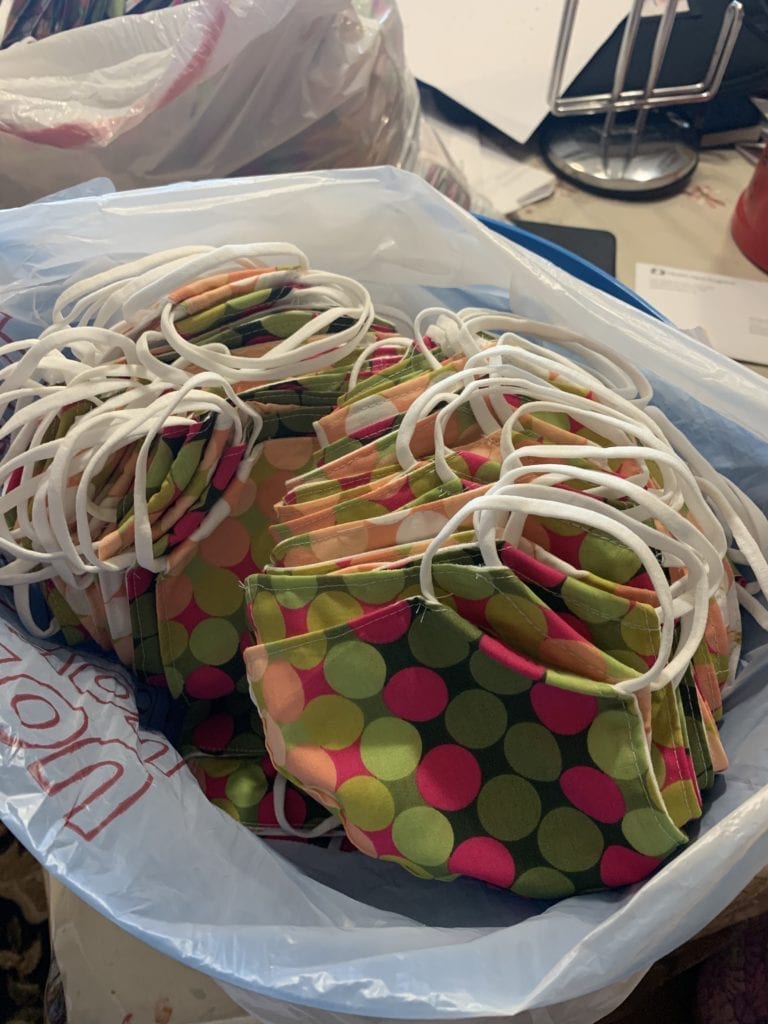
…and gain self-sufficiency
BY BHUWAN GAUTAM AND JENNA BERENT
As Massachusetts begins to reopen the economy under government-enforced public health guidelines, leaders and former refugees from the Bhutanese community in western Massachusetts are calling on their experience to undertake a project to help keep their community safe and self-sufficient during the pandemic.
In the 1990s, over 100,000 Bhutanese refugees fled Bhutan and sought refuge in Eastern Nepal. Since 2008, the U.S. government has welcomed over 90,000 of these refugees to begin a new life in America. Currently, there are about 3,500 Bhutanese people resettled in western Massachusetts. However, these former refugees from Bhutan are once again in a situation that calls on their survival skills.
Experts agree that face masks worn in public can help curb the spread of COVID-19 but many families in the Bhutanese community face challenges of getting the masks or the materials to create “DIY” masks such as fabric, needles, thread, and elastic. Language and transportation barriers, coupled with store closings, the high cost of materials, and the fear of becoming infected, have made access to resources even harder.
Despite not having the materials, many in the Bhutanese community have the skill-sets to make masks. Their skills in tailoring, knitting, and weaving contributed to their self-sufficiency and survival before they resettled in the U.S. For example, in the refugee camps in Nepal, the Bhutanese women used spinning wheels called charkhas to spin the thread used to weave cloth.
The charkha represents the symbol of self-sufficiency and interdependence. Building on this rich Bhutanese practice, we thought that if people could get mask-making materials, they could put their skills to work and help address the mask-shortage in the community. Together, we brainstormed and devised a plan to secure materials. Keeping the idea of self-sufficiency in mind, we also wanted the project to provide a source of income to the mask-makers. We began by launching a GoFundMe campaign to raise funds for materials and stipends for the mask-makers. We also reached out to the local Bhutanese grassroots non-profit organization, the Bhutanese Society of Western Massachusetts and brought more minds together to help solidify the plan and recruit skilled mask-makers from the community.
Through this capacity-building initiative, our aim was not only to facilitate the widespread distribution of masks for the Bhutanese community, but also to empower former-refugee community members to use their skills to make the masks themselves and get paid for their work.
As of today, we have raised $1,539 of our $2,000 goal. Zimmans, a local fabric store in Lynn, MA generously donated 80 yards of fabric to help boost the initiative. We have used some money to purchase necessary materials like elastic, needles, and thread to make the masks; the remainder will go toward stipends for the mask-makers.
Currently, six community members are making masks in their homes using sewing machines. One of them is a master tailor who trained the others via a Zoom conference call. She and her husband have also led the initiative in packaging and distributing the materials to each mask-maker.
“Since I have already made about 50 masks and given them to my relatives, I am so happy to be involved with this initiative and to help more people in the community,” one mask-maker said during the training.
With the plan to distribute 1,000 masks to fellow community members, the Bhutanese mask-makers are now rolling up their sleeves to make more to donate to local community health centers, daycare centers, grocery stores, and faith-based centers in the Greater Springfield, MA area. Through this strong, culturally-based initiative, people in the Bhutanese community are taking important steps towards fighting the pandemic, saving lives, and experiencing self-sufficiency.
“It is not all about money, because it makes me happy to use the skills I learned in the past to contribute to the community I live in,” second mask-maker said.
Bhuwan Gautam, a former refugee from Bhutan, is a researcher on two NIH-funded projects to address the mental health and wellbeing of resettled Bhutanese in the US and Canada. He holds an MPA from Westfield State University.
Jenna Berent, MPH, is a research program manager for a refugee behavioral health program at the Research Program on Children Adversity at Boston College School of Social Work and works closely with the Bhutanese community in Massachusetts.
